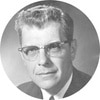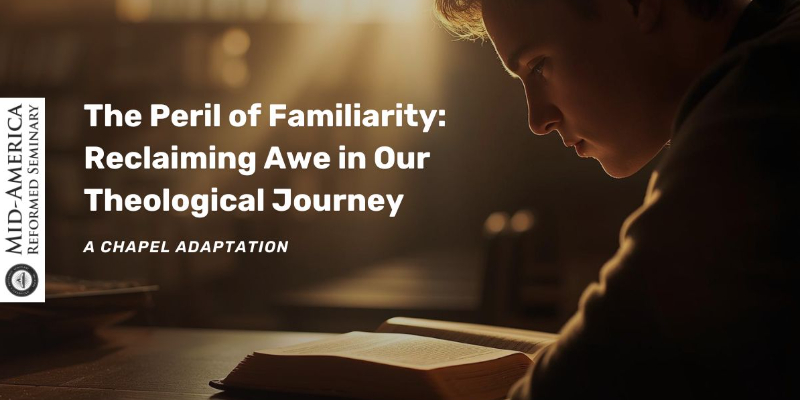
Answering Objections to Catechism Preaching Part 1
The following article has been adapted from the 1986 edition of the Mid-America Journal of Theology.
Objections have been raised against the Heidelberg Catechism and its homiletical use from the very beginning.
This should occasion no surprise. As soon as it made its appearance on the European scene, Roman Catholics, many Lutherans, and a variety of Anabaptists had little good to say about it. Nor did sermons based on its contents always receive unstinted praise from members of Reformed congregations. Even some early preachers neglected or agitated against this demand.
Such objections have by no means died away.
We still find people who argue that such preaching is sterile. The same truths are preached again and again, and that always in the same way to the wearying of the congregation. Why not, so they insist, preach something new and interesting and challenging? Others opine that this "sum of doctrine" is much too deep and abstruse for the average congregation which always includes children and young people. Occasionally one hears that these sermons are "not evangelistic" or that they "do not answer the questions which people are asking today," or that they fail to meet the real needs of those who sit in the pews.
Whether seriously intentioned or not, these objections should not be lightly brushed aside. More may well be implicit in them than appears at first hearing. Preaching is always much too solemn and sacred to be taken for granted. Yet the response can be relatively simple.
Far too many people, including also some serious-minded believers, no longer know what preaching is and ought to be according to God's will. Some greatly prefer a dramatic spectacle or soothing music which need not engage the mind. Listening, let it be remembered, is an art learned only by long and laborious practice. Ours is not an age outstanding for such an exercise in patience. Add to this the anti-intellectual and anti-authoritarian spirit which seeps daily into nearly every heart and home, and we will not be surprised that sermons which deal with the lofty themes of Holy Scripture are often far from popular.
Opposition to systematic instruction in the Christian faith, also by way of preaching, frequently springs from such cliches as "no creed but Christ" and "Christianity is not a doctrine but a life." Here are false dilemmas which the Bible itself refutes. Unless we "know" Jesus Christ (and this involves doctrinal content as well as commitment of heart and life), we cannot confess him before men, which is our chief calling and without which there is no salvation (Matt. 10:32-33). Nor can we engage in any Christian duty without proper instruction in the what and the why and the how of godly living according to the word. Here rank-and-file unbelievers usually put to shame many who belong to the churches. The former can state and defend and propagate their convictions and life-style, while many of the latter are tongue-tied. They may still attend church with a degree of regularity. But failing to ask seriously the right questions about God, themselves, and their relation to others and the world in which they live, their minds remain untouched and their hearts unchanged. Preoccupied with pleasures and profits of the daily round, they fall under the apostolic judgment of "having a form of godliness but denying its power." They simply will not be bothered with what they regard as unnecessary and unprofitable details in the Bible which they still claim to believe.
The blight of ignorance, indifference, and superficiality with respect to God's truth has by no means left Reformed churches unscathed either. True and saving faith is more than a religious feeling. It knows what it believes and in whom it trusts. Without sound knowledge of God as he reveals himself in the word, faith is reduced to fantasy which deceives for time and eternity. It is always under attack from without and within. Everything conspires against learning to know and enjoy him rightly, so that faith needs to be regularly and repeatedly strengthened by the facts and mysteries of the Christian religion.
On this our Lord also insisted when commanding the disciples to engage in "teaching them to obey everything I have commanded you." Only then, according to the testimony of Paul, "will we no longer be infants, tossed back and forth by the waves, and blown here and there by every wind of teaching and by the cunning and craftiness of men in their deceitful scheming. Instead, speaking the truth in love, we will in all things grow up into him who is the Head, that is Christ, from whom the whole body, joined and held together by every supporting ligament, grows and builds itself up in love, as each part does its work."
How else, then, can an individual or a congregation grow strong in faith, firm in hope, and abounding in love? All who despise instruction in the Christian religion soon cease to deserve the name Christian.
But can God's truth, so some who object to catechetical preaching would protest, be put into words which have abiding value and validity? Is not truth in its depth-dimension really relational, so that all statements and propositions which attempt to reproduce it are at best only poor approximations?
Here, it must be realized, the attack is not leveled only against creeds and confessions; it ranges itself against the very form and content of Scripture itself. To explain and explode this objection lies outside the scope of this article. Let it simply be affirmed that all who argue in this fashion can never, if true to what they claim, say anything meaningful about anything. Nor have they learned to listen reverently and believingly to what the prophets, the apostles, and especially our Lord Jesus taught.
But can a creed, especially one formulated some hundreds of years ago, meet the spiritual needs of today? Is not its language much too antiquated and the questions which it asks and answers far too irrelevant to the everyday concerns of our time? Not a few, especially philosophers and scientists and theologians bewitched by the explosion of knowledge characteristic of the twentieth century, would answer the above with a resounding insistence that we have outgrown the past.
What should be faced at this juncture is whether human nature has been so radically changed that a totally new approach is demanded. Also, has not language itself, especially that of ordinary folk, undergone such great changes that we no longer understand what then was put on paper?
Reasonable responses to such assertions, it seems to us, lie at hand.
Has man's nature actually changed so much, despite all that has happened to our physical and spiritual environment, so that we can discount the past? Are not all men, then as well as now, endowed with the ability to think and speak and so communicate with each other? Are not all sinners in need of divine salvation? And do not our problems, no matter how seemingly complex and difficult of resolution, stem from the same alienation from God, ourselves, others, and the world around us even as they did centuries ago?
Few will deny that the temper of our times is radically other than that which affected our grandparents, let stand those of far earlier generations. Mass media—including newspapers, magazines, and novels that flood the marketplaces as well as radio and television—impinge on old and young every day. All these affect what we think and feel and do, not only by the facts which they often purport to present but much more profoundly by explanations and interpretations which are inescapably added. Always there is more than we can assimilate, much less evaluate with any degree of discernment. The world, as someone so aptly remarked, is too much with us late and soon. All this seems to raise barriers between us and the life- and world-view presented in the Bible and summarized in the evangelical confessions of the church. Preachers and people alike will have to keep this always in mind. Man, much more perhaps than in the past, has become a problem to himself and to others. Increasingly he feels himself alone and lost in a wilderness with no way out. Life for such persons has become directionless, because they are without chart and compass.
All the more reason, then, to get back to the teachings of Scripture, as these are so pointedly, practically, and pastorally summarized in the creeds, including the Heidelberg Catechism. In subordination and subservience to the Bible, it attempts to ask the right questions and provide the only satisfying answers to the riddle of our existence. Nor can man know himself in isolation. Left to themselves, all without exception have lost the way, which is the Lord Jesus Christ in his fulness, and so also the address, which is the triune God of all grace and glory.
Here lie exposed the deep roots of man's problems and perplexities. Life to him becomes a troubled sea whose contrary and contradictory waves threaten his very existence at every point. No rest of soul can be his, unless he learns to rest in the word and will of God who is Creator, Savior, and also Lord of and over all.
Calvin, that master preacher and pastor, and theologian, so correctly insists: "It is evident that man never attains to a true self-knowledge, until he has seriously contemplated the face of God, and comes down after such contemplation to look into himself .... Until God reveals himself to us, we do not think we are men, or rather, we think we are gods; but when we have seen God, then we begin to feel and know what we are."
How much also we as Christian believers should be reminded of this repeatedly. We need clear, penetrating, and persuasive instruction in that which alone can give abiding meaning and purpose to our lives whose existence has become too much enslaved by what we can touch with hands which grow weaker with the years. Our souls need to be lifted up far beyond the hills. Our spirits can be sustained only by food which abides into that eternity which awaits all who partake in faith.
To that end, catechetical sermons have been mandated and maintained.
In obedience to the life-giving word, they supply preachers and people with a pattern which prevents them from majoring in minors and so wandering into bypaths from which there is no exit. Reformed churches, therefore, need never feel apologetic about making use of their catechism for homiletical purposes.
Is the language of our catechism, as some still urge, too antiquated or too technical? Then let preachers remember what they have been called by God. They are to teach old and young; some only recently attracted by the gospel and others whose lives have been steeped in Scripture for many years. But all need teaching. And this is a work worthy of all his energies and efforts. Creativity in expressing old truths in a new and illuminating way is the art which he does well to seek to master. He will attempt to explain patiently. He will make use of apt illustrations drawn from both the Bible and contemporary life situations. He will demonstrate the applicability of God's truth to daily life, convinced that sound doctrine is no end in itself but aims at godliness which delights the One who has commissioned him to preach. When this is consistently and conscientiously done, these objections soon melt like snow before a warm and radiant sun.


P.Y. De Jong (1915-2005) was one of the founding members and former professor at Mid-America Reformed Seminary.
Recent articles




